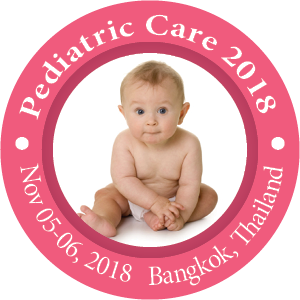Sukhwinder Kaur
National Institute of Nursing Education, India
Title: An operational study to develop skills among health care providers for implementation of pain assessment scale in neonates admitted in neonatal units of tertiary care hospital
Biography
Biography: Sukhwinder Kaur
Abstract
Nutritional needs in critically ill children are higher than that of normal child because sick children are fighting against infections, trauma and disease. They require more energy to stabilize themselves in a normal range. The goal of nutritive supplementation is to minimize nitrogen wasting and provide adequate non-protein substrate. There are many common hospital practices which leads deterioration of nutritional status of children i.e. limited availability methods to assess nutritional
status; withholding of food due to diagnostic procedures, etc. Nurses working in critical care units play an important role in maintaining nutritional level of critically sick children. There is a catabolic phase of the stress response to critical illness which results in increased caloric needs, urinary nitrogen losses inadequate intake, wasting of endogenous protein stores, gluconeogenesis and mass reduction of muscle-protein breakdown. Energy expenditure also increased if child experience pain anxiety, fever, etc. Critically sick children need appropriate nutritional support to avoid prolonged ventilator dependency and prolonged ICU stay. Any child with healthy gastrointestinal passage is liable to receive enteral nutrition. It is the least invasive way of administering nutritional support in a functioning gut. Enteral feed can be given by nasogastric, nasoduodenal and
nasojejunal routes. If requirement for enteral feeding is expected for more than 4 weeks, gastrostomy and jejunostomy routes are chosen. Nasogastric feed should be started within 24 hours of admission to PICU at the rate 1 ml/kg/feed every 3 hours and gradually advance it over next 2-3 days until desired nutritional level is achieved. Abdominal girth should be measured hourly when feedings are initiated or increased and every two to four hourly during feeding if gastric distension develops and gastric residual volume should be checked every 4 hours. Parenteral nutrition refers to the delivery of all the nutrients directly into the blood stream. It is indicated when enteral administration is inappropriate or has failed. Total parenteral nutrition play an important role in cases where enteral nutrition is contraindicated. Nutrition management is an essential component of critical care. Malnutrition should be identified early as it worsens prognosis. Enteral nutrition is always better than parenteral nutrition
in reducing infections with the added advantage of being less costly and easier to administer. Successful enteral nutrition requires a careful selection of enteral formula, appropriate monitoring of child is essential and avoid overfeeding.

